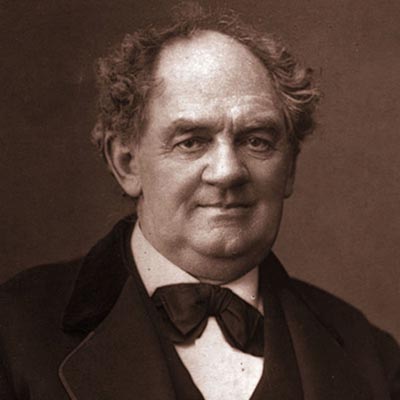Barnum, Bernays and Debbie Sterling

P. T. Barnum
“There’s a sucker born every minute.” It’s a quote usually credited, quite derisively, to the nineteenth century’s most successful showman, P. T. Barnum (the left half of Barnum and Bailey). The fact that Barnum never said it means little. People think it fits the man. And to this day, “Barnumesque” is shorthand for a hoax or marketing con.
But let’s suspend judgement for a minute.
Sure, Barnum trafficked in fictions – the Feejee Mermaid, the Cardiff Giant and Joice Heth, the supposed 161-year old nursemaid to George Washington. But Barnum’s fictions, his hoaxes if you prefer, were meant less to deceive and more to entertain.
Barnum is one of three characters I use to rush my University at Albany seniors through the the first two centuries of mass media promotion.
Initially at least, most of my students see Barnum as current popular culture does. A con man.

Edward L. Bernays
More impressive to them is the second character from our syllabus, Edward L. Bernays.
Bernays was the self-proclaimed “father of public relations,” and he called what he did engineering consent.
The stories are legion. Bernays, by his own reckoning, was responsible through his acts of subtle media manipulation for making bacon and eggs our national breakfast, making it okay for classy women to smoke and paving the way for the CIA to overthrow the ‘Communist’ government of Guatemala.
Bernays was a master at tapping the potential energy of taboo topics and social controversies by suggesting the best path to correct these cultural ills was through the purchase of his clients’ products and services and support of their missions.
With a surprising lack in cynicism, students usually prefer Bernays to Barnum, seeing him more as a liberator than a propagandist.

Debbie Sterling
That’s when I introduce Debbie Sterling.
I ask, is Sterling more Barnum or Bernays?
Sterling is the CEO of Goldiblox, a company that makes engineering-oriented toys for girls. With a modest Kickstarter campaign, a clever viral video and a Ted Talk, surrounded by a public relations campaign that would have made Bernays proud, Sterling helped her tiny company crack the toy bigtime – even winning a 30-second spot on the Super Bowl – without spending a cent on traditional paid media advertising.
At the center of Goldiblox’s success is its story, personified by Sterling herself.
As Bernays tapped into the taboos against women smoking to pitch Lucky Strikes, Sterling exploited the controversy surrounding the underrepresentation of women in the harder-core engineering fields to pitch her toys.
Now, I’m not equating the morality of making it okay for women to smoke with making it okay for girls to become engineers. But in the best tradition of Bernays, Goldiblox has masterfully exploited a cultural issue in order to advance its business mission.
However, what impresses me most is not how Bernays-like Goldiblox is in its public relations, but how Barnum-like they are with their story.
According to the company’s official line, Sterling, an engineer by training, was, throughout her early life, nearly the lone female in her math and science classes. In her Ted Talk, she claims she barely knew what an engineer was, outside of a guy who drives trains. Not wanting a new generation of girls to grow up equally ignorant, Sterling started Goldiblox.
A very compelling narrative.
But Sterling generally leaves out the bit where she worked as a marketing director, brand consultant and even viral video pioneer between her graduation from Stanford and her starting days at Goldiblox.
While what’s left is not fiction, exactly, this careful edit does remove a complicating factor that just might make the audience suspect they’re being manipulated.
But my point in bringing this up is not to get students to see Sterling more cynically, but to see Barnum more positively.
Is marketing only about manipulation? Can’t it sometimes be about creating pleasant, positive, perhaps even powerful fictions? Who is the hero here?
Nobody really cared that Joice Heth wasn’t exactly what Barnum claimed her to be. By all accounts, Heth was a fascinating storyteller. And that’s what people paid to see. Likewise, Goldiblox customers don’t generally care that Debbie Sterling is a savvy brander. For them, Sterling is a storybook character come to life, a fine fiction for mothers, grandmothers, aunts and others seeking to introduce the girls in their lives to something beyond pink tulle and the princess archetype.
